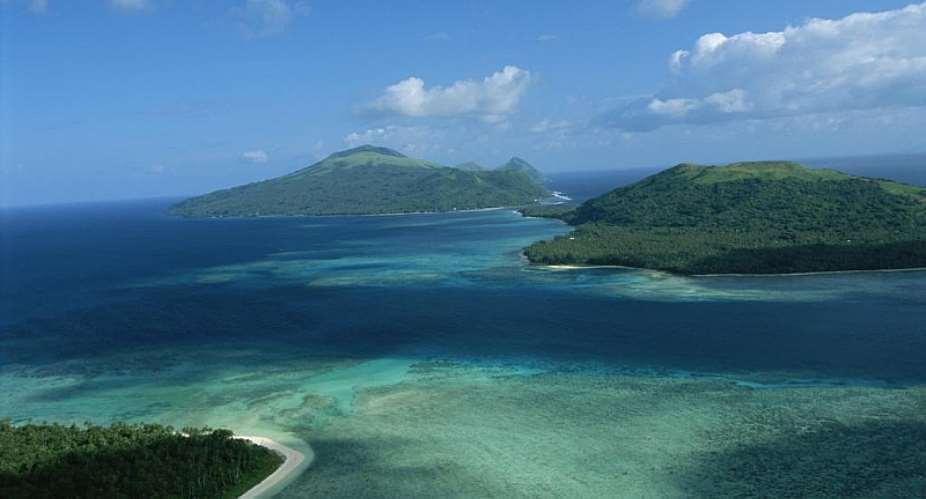Vanuatu, one of the countries most vulnerable to climate change, is considering legal action against the world's biggest polluters.
Speaking at a virtual summit held by countries most at risk of climate change, Foreign Minister Ralph Regenvanu warned Vanuatu is taking aim at fossil fuel corporations and the industrialised countries who support them.
"My government is now exploring all avenues to utilise the judicial system in various jurisdictions – including under international law – to shift the costs of climate protection back onto the fossil fuel companies, the financial institutions and the governments that actively and knowingly created this existential threat to Vanuatu,” he said.
Regenvanu said it was an injustice that the impacts of climate change are felt first – and hardest – by the countries least responsible for causing it, and who benefit least from the exploitation of fossil fuels. "I am therefore today putting the fossil fuel industry, and the states that sponsor it, on notice that the climate loss and damages ravaging Vanuatu will not go unchallenged."
Leading polluters include Russia's Gazprom, the Anglo-Dutch oil company Shell, Australian mining giant BHP Billiton, Coal India and the Anglo-Swiss commodities trader Glencore Xstrata. As far as countries go, China, the US and the EU contribute the most fossil fuel emissions.
Frontline of climate change
With a population of 260,000 people, Vanuatu is a Y-shaped archipelago made up of 82 small volcanic islands, many of which sit less than a metre above sea level.
Its announcement Thursday marks the latest in a growing number of climate lawsuits - in the Philippines, Peru and some US states and cities - seeking to hold the fossil fuel industry to account.
“Like most of the Pacific, Vanuatu is on the frontlines of climate change. That was tragically demonstrated by Cyclone Pam, which killed 15 people in Vanuatu, left 75,000 homeless and caused more than - $590 million - in damage,” Greenpeace Australia Head of Pacific Net, Kelvin Anthony, said .
“That's equivalent to 64 percent of Vanuatu's GDP. The Pacific is not holding back anymore. Our small economies are at risk due to climate-fuelled disasters and slow onset impacts and that has put us in a vulnerable position globally. We will take every step we can to up the pressure on the high polluting economies. It is our right to survival.”





 2024 elections: Resign if you can't be faithful to party - Sagnarigu NDC PC desc...
2024 elections: Resign if you can't be faithful to party - Sagnarigu NDC PC desc...
 Five arrested, remanded over alleged murder of two police officers at Transacco
Five arrested, remanded over alleged murder of two police officers at Transacco
 Tax exemptions better than incentives for churches – Tax Analyst tell Bawumia
Tax exemptions better than incentives for churches – Tax Analyst tell Bawumia
 Transport Minister sues Law Platform Editor for defamation
Transport Minister sues Law Platform Editor for defamation
 Voter registration: Police arrest NPP Treasurer for Mpohor for registering minor
Voter registration: Police arrest NPP Treasurer for Mpohor for registering minor
 "This nonsense must stop" — Lawrence Tetteh vows to march to Jubilee House over ...
"This nonsense must stop" — Lawrence Tetteh vows to march to Jubilee House over ...
 2024 elections: “If indeed you stand for peaceful elections the time is now for ...
2024 elections: “If indeed you stand for peaceful elections the time is now for ...
 I have the attributes to be president of this country — Bernard Monarh
I have the attributes to be president of this country — Bernard Monarh
 Cecilia Dapaah saga: ‘Turf war’ between AG, EOCO, OSP indicates they’re not ‘cor...
Cecilia Dapaah saga: ‘Turf war’ between AG, EOCO, OSP indicates they’re not ‘cor...
 Ghana will become the first African country to embrace blockchain-powered gover...
Ghana will become the first African country to embrace blockchain-powered gover...
